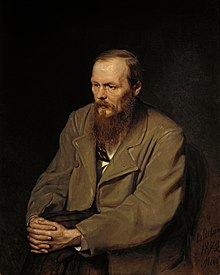
Unraveling the Enigma of Fyodor Dostoevsky
Fyodor Dostoevsky, the enigmatic Russian novelist of the 19th century, stands as a towering figure in world literature, renowned for his profound exploration of the human condition and the complexities of the psyche. But who was the man behind the iconic novels that continue to captivate readers across generations?
Exploring the Life and Influences of Dostoevsky
Dostoevsky’s formative years were marked by personal tragedies, political turmoil, and existential angst. Born in Moscow in 1821, he witnessed the death of his parents in his early years and grappled with the societal upheaval of 19th-century Russia. His experiences of poverty, imprisonment, and exile left an indelible mark on his psyche, shaping his worldview and informing his literary endeavors.
The Literary Journey of a Visionary
Dostoevsky’s literary career began with the publication of his debut novel, “Poor Folk” (1846), which garnered critical acclaim and signaled the emergence of a prodigious talent. However, it was his subsequent works that catapulted him to literary greatness. From the psychological masterpiece “Crime and Punishment” (1866) to the existential epic “The Brothers Karamazov” (1880), Dostoevsky’s novels probed the depths of the human soul with unparalleled insight and intensity.
Themes and Innovations in Dostoevsky’s Novels
Central to Dostoevsky’s oeuvre are themes of morality, spirituality, guilt, redemption, and the search for meaning in a world fraught with suffering and uncertainty. His characters, from the tormented Raskolnikov in “Crime and Punishment” to the enigmatic Ivan and the saintly Alyosha in “The Brothers Karamazov,” grapple with existential dilemmas and moral ambiguity, inviting readers to confront their own inner demons and wrestle with the complexities of the human condition.
Dostoevsky’s Literary Legacy and Cultural Impact
Dostoevsky’s influence extends far beyond the realm of literature, permeating the cultural landscape of the 19th century and beyond. His innovative narrative techniques, including stream of consciousness, multiple perspectives, and existential inquiry, revolutionized the novel as a literary form, paving the way for modernist literature and inspiring generations of writers and thinkers.
Honoring Dostoevsky’s Enduring Legacy
In commemorating the life and works of Fyodor Dostoevsky, we pay homage to a literary visionary whose insights into the human psyche continue to captivate and provoke. Through his timeless novels, Dostoevsky invites us to confront the darkest recesses of our souls, to grapple with our innermost fears and desires, and to ultimately strive for redemption and transcendence.
As we navigate the complexities of the modern world, let us heed Dostoevsky’s admonition: “Above all, don’t lie to yourself. The man who lies to himself and listens to his own lie comes to a point that he cannot distinguish the truth within him, or around him, and so loses all respect for himself and for others.”
With this reflection on Fyodor Dostoevsky’s life and legacy, we celebrate a literary titan whose words continue to illuminate the human condition and inspire us to seek truth, meaning, and authenticity in our own lives.



